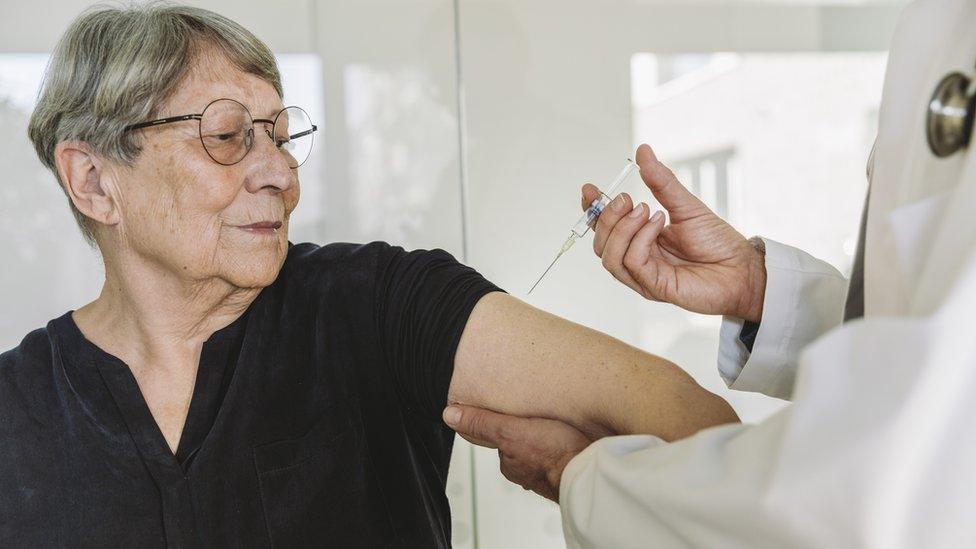Covid: Health and care workers get first vaccine in Wales
- Published
- comments
Nurse Bethan Cox: "There's a lot of hope out there now"
Health and care workers have been the first people in Wales to get a vaccine to protect against Covid.
Vaccinations were rolled out from Tuesday morning at seven sites across Wales as part of the UK-wide immunisation programme.
Among the first was care home worker Craig Atkins, 48, of Ebbw Vale, who got a jab at a vaccination site in Cwmbran.
More than 1,700 people received the vaccination on Tuesday, according to the Welsh Government.
It came a day after Wales reported 2,000 Covid cases in a single day for the first time.
Rates in some areas are among the UK's highest.
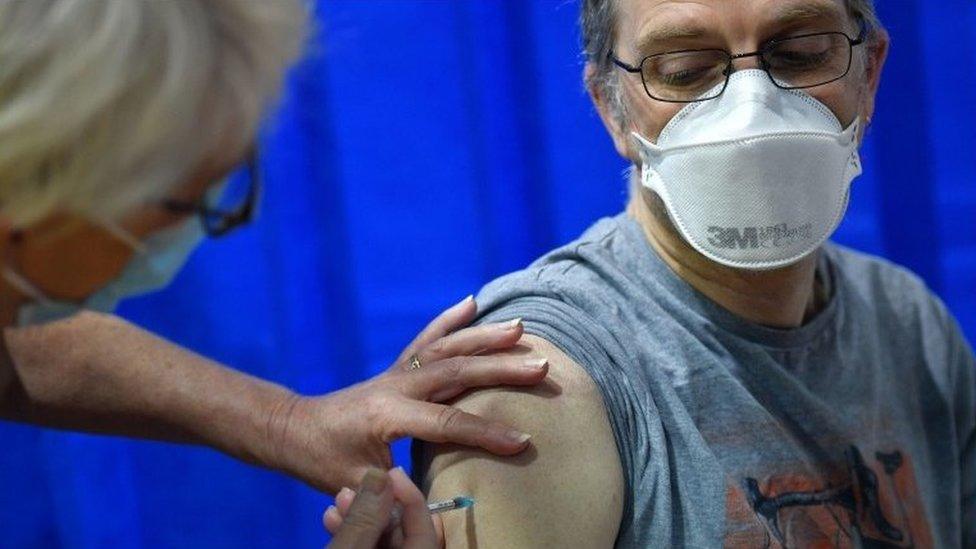
David Farrell, 51 from Llandow, Vale of Glamorgan, receives the vaccine in Cardiff
Mr Atkins, 48, has diabetes and said he had not been one to have things like the flu jab in the past, but felt he could now smile.
"It was scary. I was the first to have this here today and it's a bit of a leap into the unknown," he told BBC Wales.
Critical care consultant Dr Ami Jones was among the first medics to receive the Covid jab
He said it had been difficult for staff at the care home, adding: "We've had to put everything on hold.
"I've kept my kids off school longer than anybody else. We didn't want to be in quarantine and we didn't want to take it into the nursing home."
People are being asked not to arrive at the centres without an appointment as those who were being vaccinated were the most vulnerable.
Earlier on Tuesday, Margaret Keenan, 90, originally from Enniskillen in Northern Ireland, became the first person in the UK to receive the vaccine (outside of clinical trials) at University Hospital Coventry.
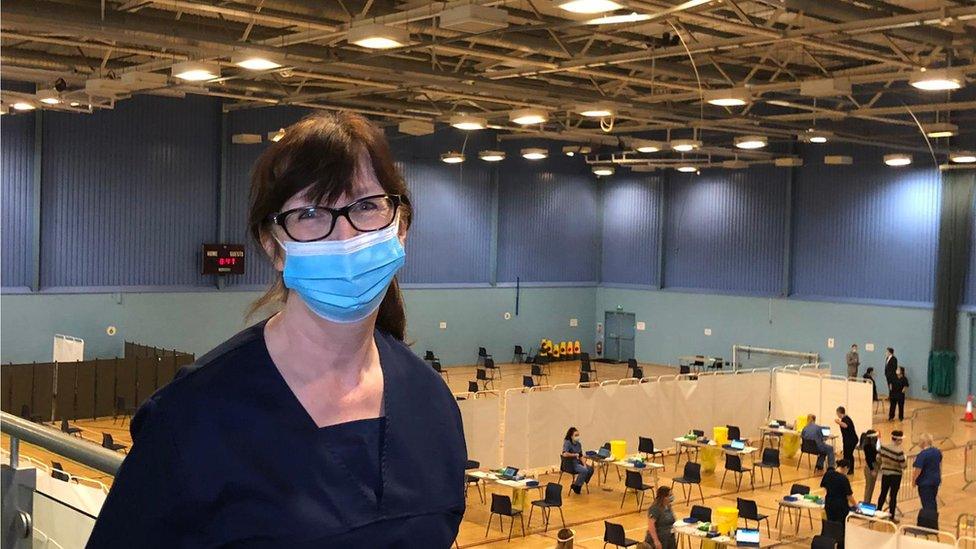
Emergency planner Wendy Warren will also administer vaccines to people
Wendy Warren, head of emergency planning at the Cwmbran stadium site, said: "We're immensely proud. Everyone has put so much work into this.
"The thing for us is that our hospital is a really busy site... so working with our local authorities means we can bring the vaccine to people into a community area, to people, which is better for them.
"We ran drills, staff pretending to be patients which is an opportunity to test things out. It's on a scale we've never done before."
Dr Ami Jones, an intensive care consultant at Aneurin Bevan health board, was another early recipient of the vaccine.
She said: "It's huge - a light at the end of the tunnel. I hope people realise how important this is and how safe it is.
"People should trust the science. It's to protect my family and other people."
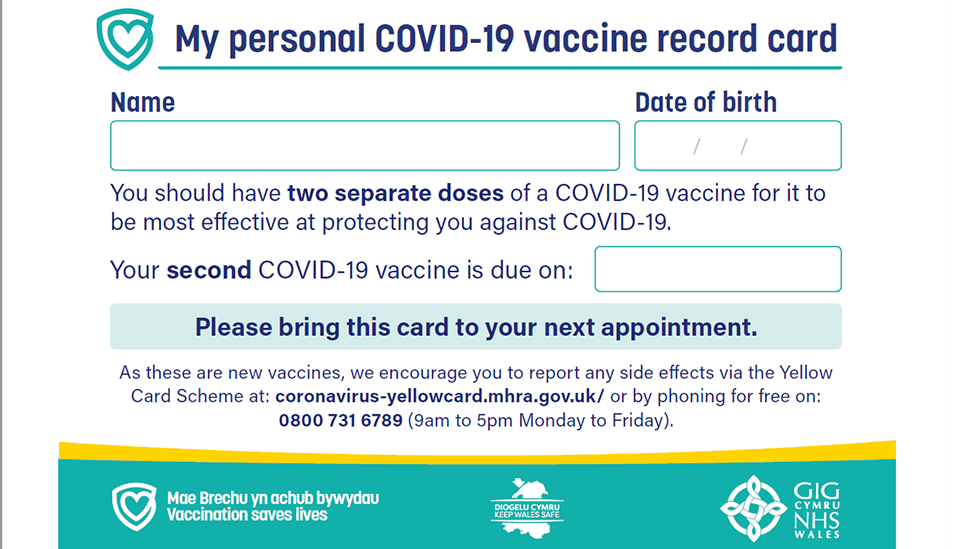
The cards will have a person's name and date of birth but no other personal details

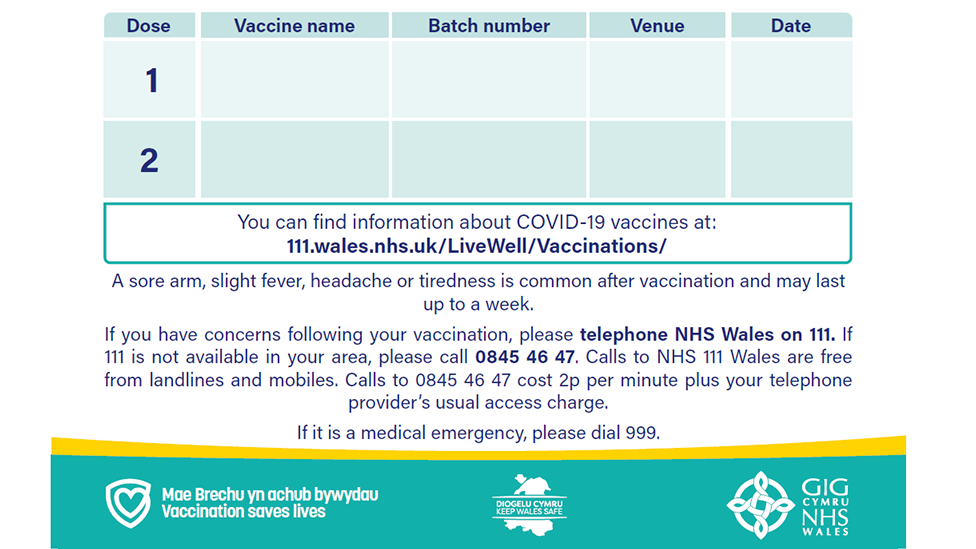
They also display the vaccine name and batch number
Swansea's Morriston Hospital matron Cath Watts, who is leading its vaccination programme, said more than 240 staff were due to be vaccinated on Tuesday.
Emergency department receptionist Emma Roham said it was "quick, easy, simple" process and she urged people to "do it", adding, "I haven't grown a third head".
People will receive a vaccination card from NHS Wales after their first dose of vaccine.
These will display details of the vaccine name, date of vaccination and the batch numbers of each dose.
They will also have the person's name and date of birth, but no other personal details, and will have a reminder of the date of the second dose.
The cards are available in English and Welsh.
The Welsh Government said it had no plans for a vaccine passport or ID card, adding: "This is designed to be a reminder about when the second dose is due and will help people report any side effects."
'A pivotal moment'
People's freedoms in Wales, as around the world, have been restricted more during the coronavirus pandemic than at any other time of peace.
The country has endured two lockdowns and nine months of restrictions while more than 3,000 people in Wales have died with the virus since March.
How will the new Pfizer vaccine work?
The first minister said he was "proud" that Wales is among the first countries to begin their Covid vaccination programme.
"This vaccine is a small glimmer of light at the end of what has been a long and dark tunnel," said Mark Drakeford.
Welsh Secretary Simon Hart MP said: "The vaccine roll-out is fantastic news and is what we have all been waiting for. The UK government purchased this vaccine on behalf of the whole of the United Kingdom and the focus now is distributing it as quickly as possible."
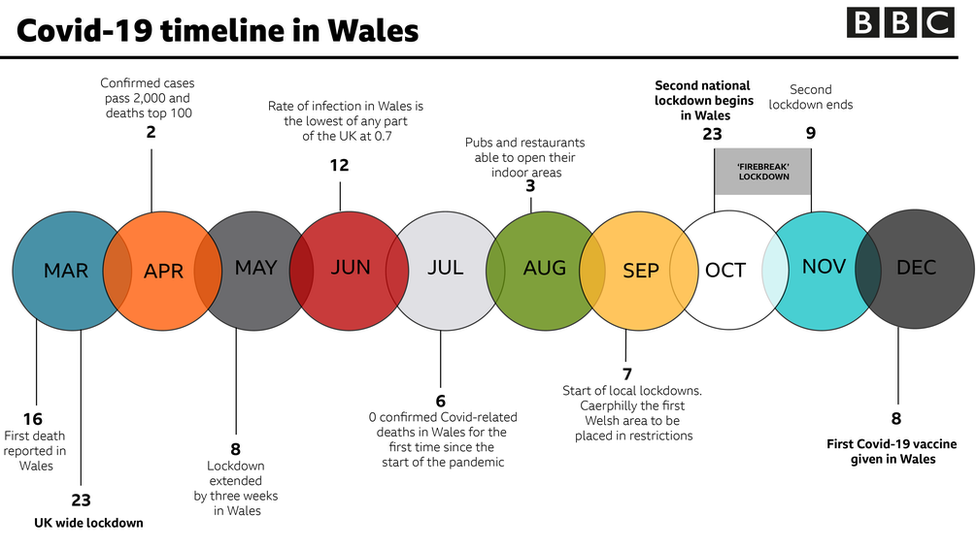
How will the rollout begin?
Refrigerated containers holding the vaccine doses, which must be stored at -70C, have been arriving in the UK from Belgium, where it is made, since the weekend.
The UK has ordered 40 million doses of the Pfizer/BioNTech jab. That is enough to vaccinate 20 million people with the two required doses.
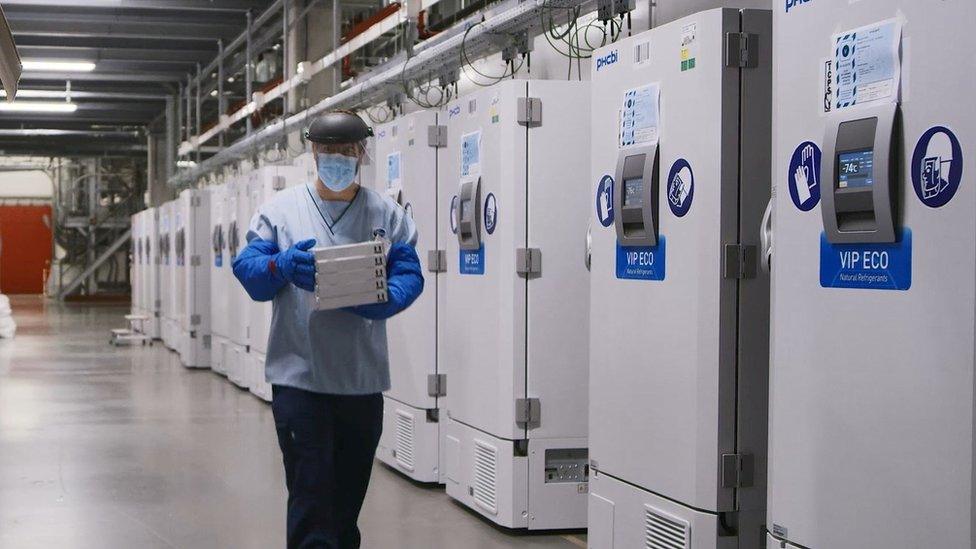
The vaccine is made in Belgium and has to be stored at around -70C
Initially, Wales will have 40,000 doses of the vaccine - enough for nearly 20,000 people - in the first tranche of 800,000 doses.
It is expected more than 6,000 doses of the jab will be administered from special centres across Wales in the first phase by the end of this week - as Wales aims to eventually inoculate 1.4m people by the end of the vaccination programme.
People will be contacted by their health boards when it is their turn for an appointment.
"I am feeling hopeful, for the first time in a long time," added University Hospital of Wales intensive care consultant Dr Matt Morgan who will have his jab on Tuesday.
Who will get the vaccine first in Wales?
Front-line NHS staff, care home workers and over-80s will be the first to get the vaccination at hubs across Wales' seven health boards.
Residents of care homes are on the priority list but Wales' health minister said they will have to wait due to concerns surrounding the transporting of the vaccines at extremely low temperatures.
Vaughan Gething said conversations had taken place with Pfizer and the regulator "to understand how we can safely and lawfully deliver this vaccine to care homes".
The Welsh Conservatives said the delay for care homes was a "bitter blow" and called for Wales to appoint a vaccines minister, as in England, to ensure the process runs smoothly.
Mr Gething has also warned it "would take months before some people were able to receive their vaccine" and called on people to avoid "going back to the old normal before the vaccine has given us the protection we need".
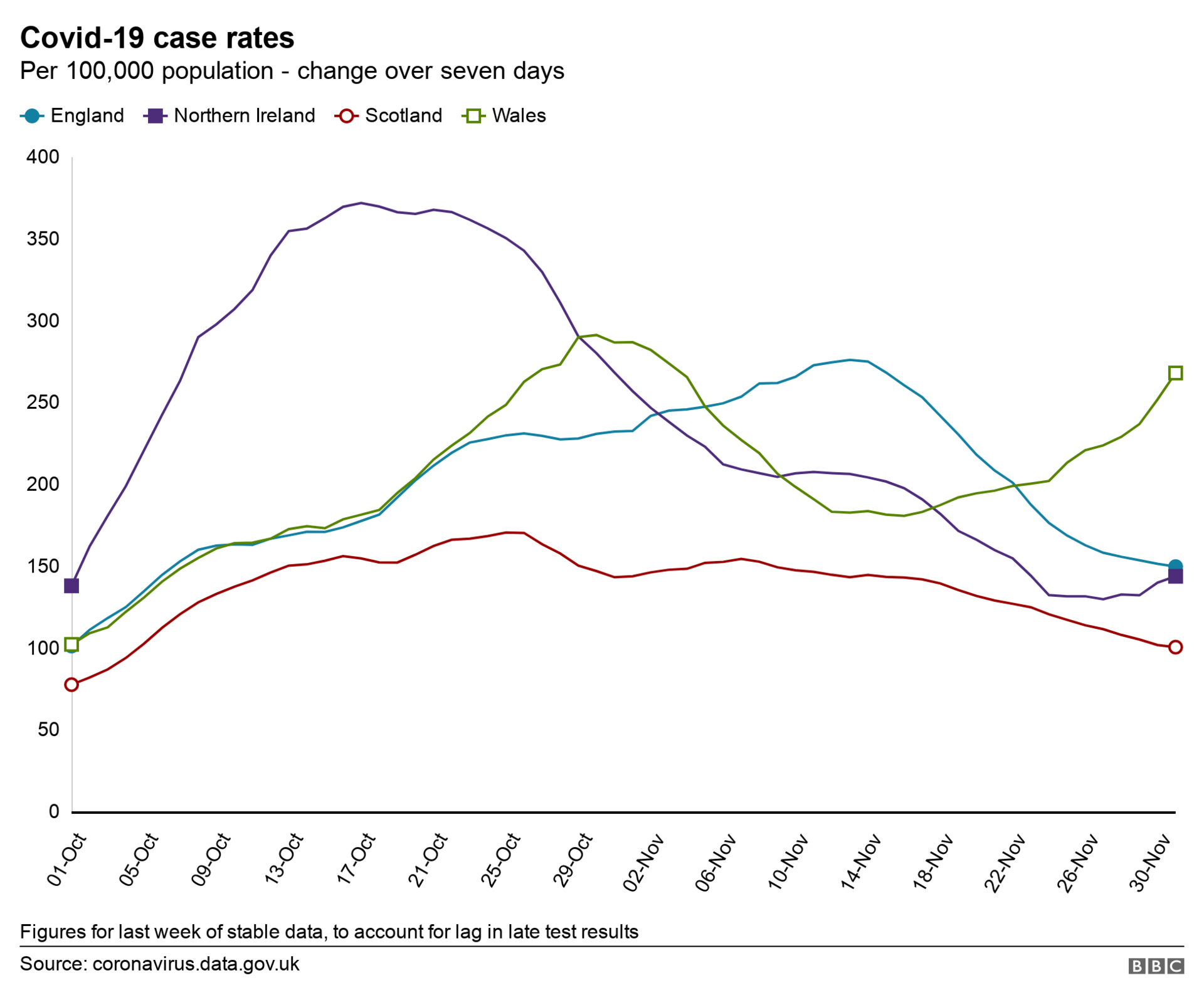

How safe is the vaccine?
The UK is the first country in the world to approve the Pfizer/BioNTech coronavirus vaccine as Britain's medicines regulator says the jab, which offers up to 95% protection against Covid-19 illness, is safe to be rolled out.
It is the fastest vaccine to go from concept to reality, taking only 10 months to follow the same steps that normally span 10 years.
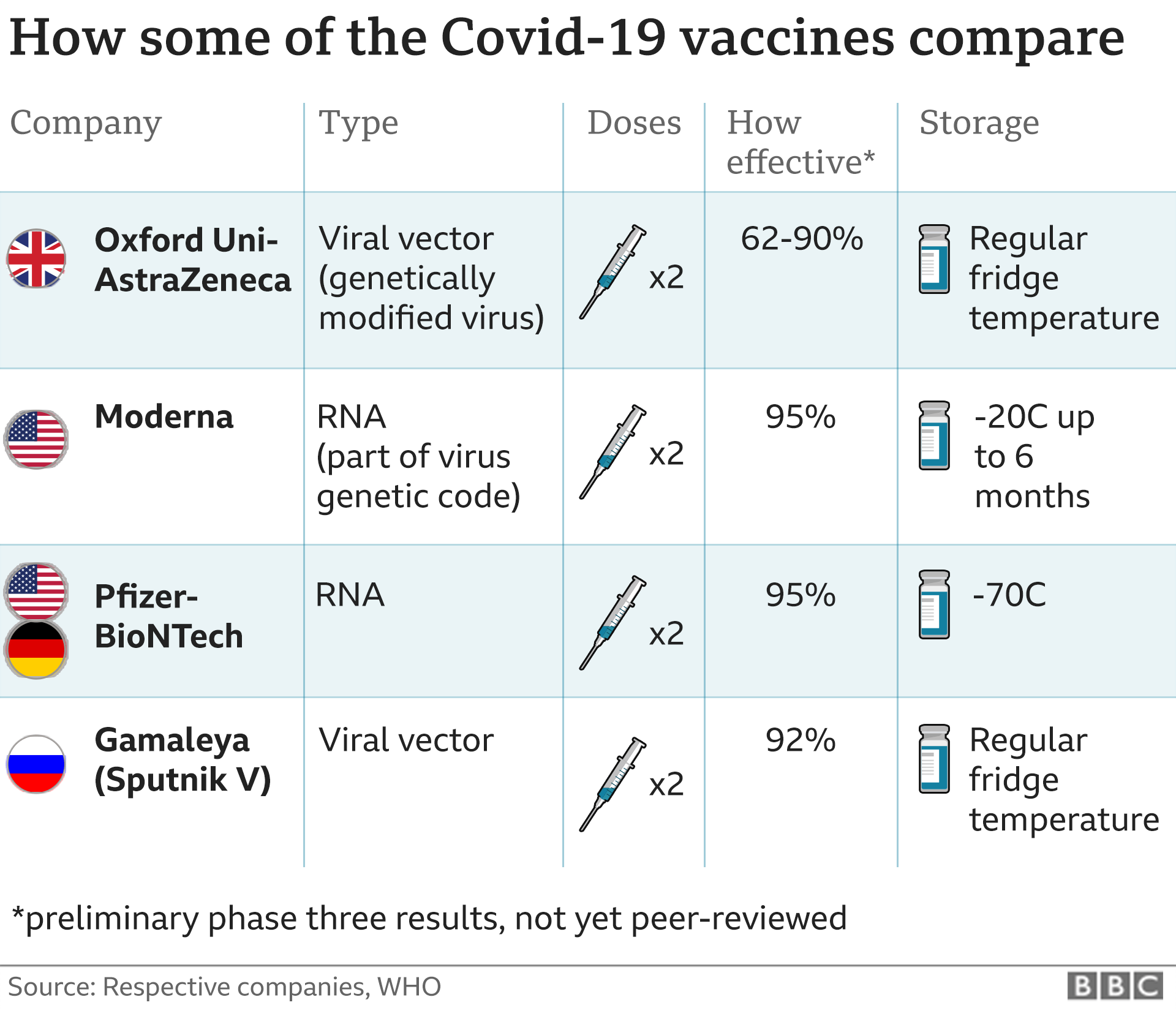
Two full doses of the Oxford vaccine gave 62% protection, a half dose followed by a full dose was 90% and overall the trial showed 70% protection.
It is among a handful of vaccinations that the UK has bought doses of - and the others could be administered if they are also approved by the Medicines & Healthcare products Regulatory Agency (MHRA).
The Pfizer/BioNTech vaccine has been trialled on more than 40,000 people, with only mild side-effects reported.
Dr Matt Morgan, an intensive care consultant at University Hospital of Wales, Cardiff, said the biggest risk in getting the vaccine was driving to the test centre to have it done, while the benefits of the injections were "huge".


TESTING: How do I get a virus test?
LOOK-UP TOOL: How many cases in your area?
LOCKDOWN LOOK-UP: The rules in your area

- Published8 December 2020
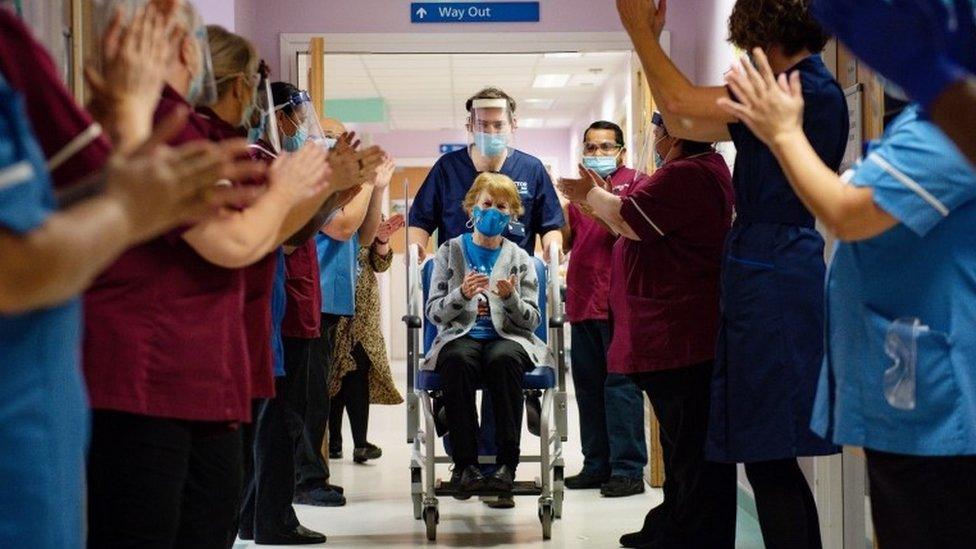
- Published17 December 2020
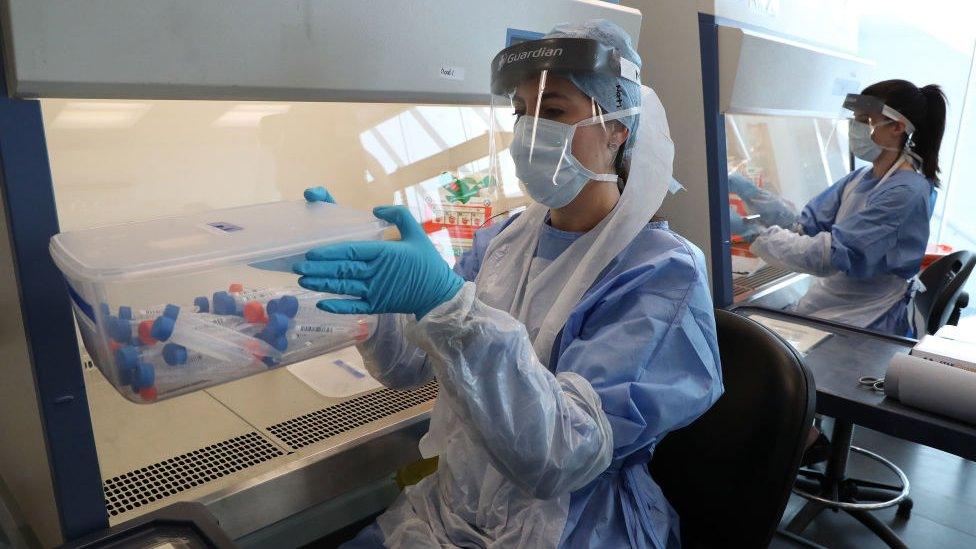
- Published7 December 2020
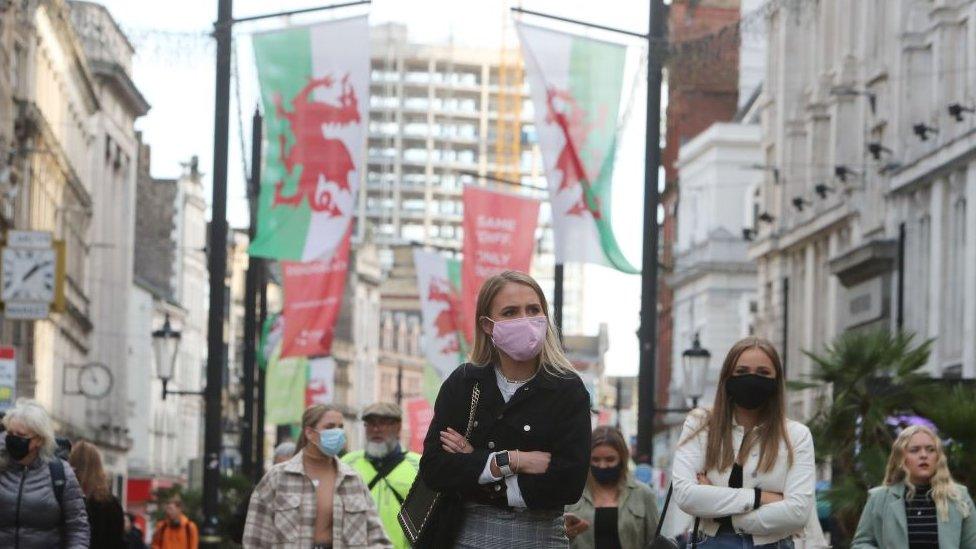
- Published7 December 2020
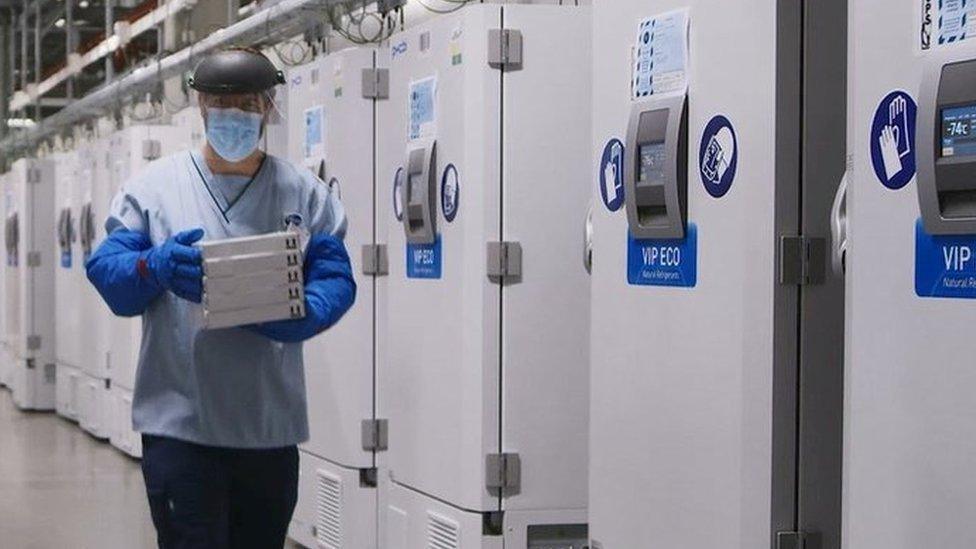
- Published7 December 2020
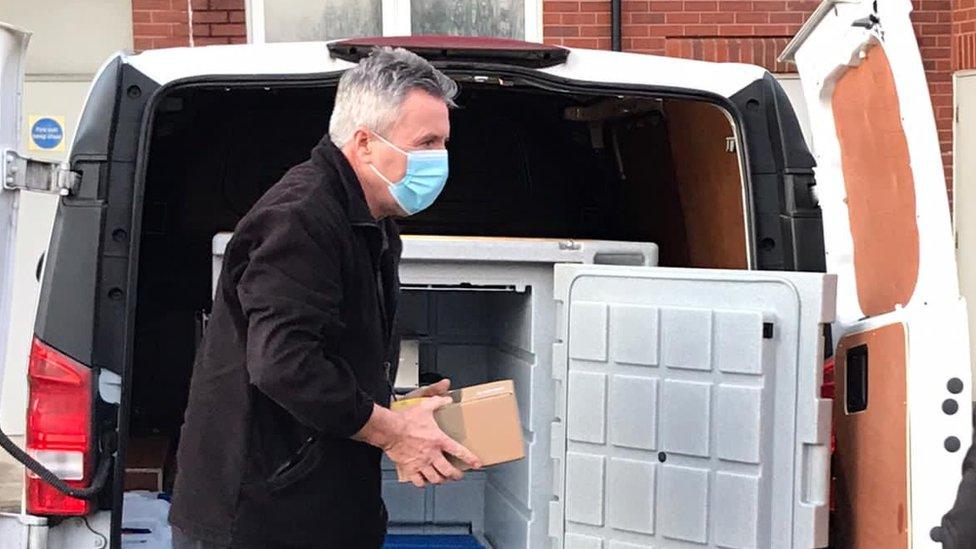
- Published6 December 2020
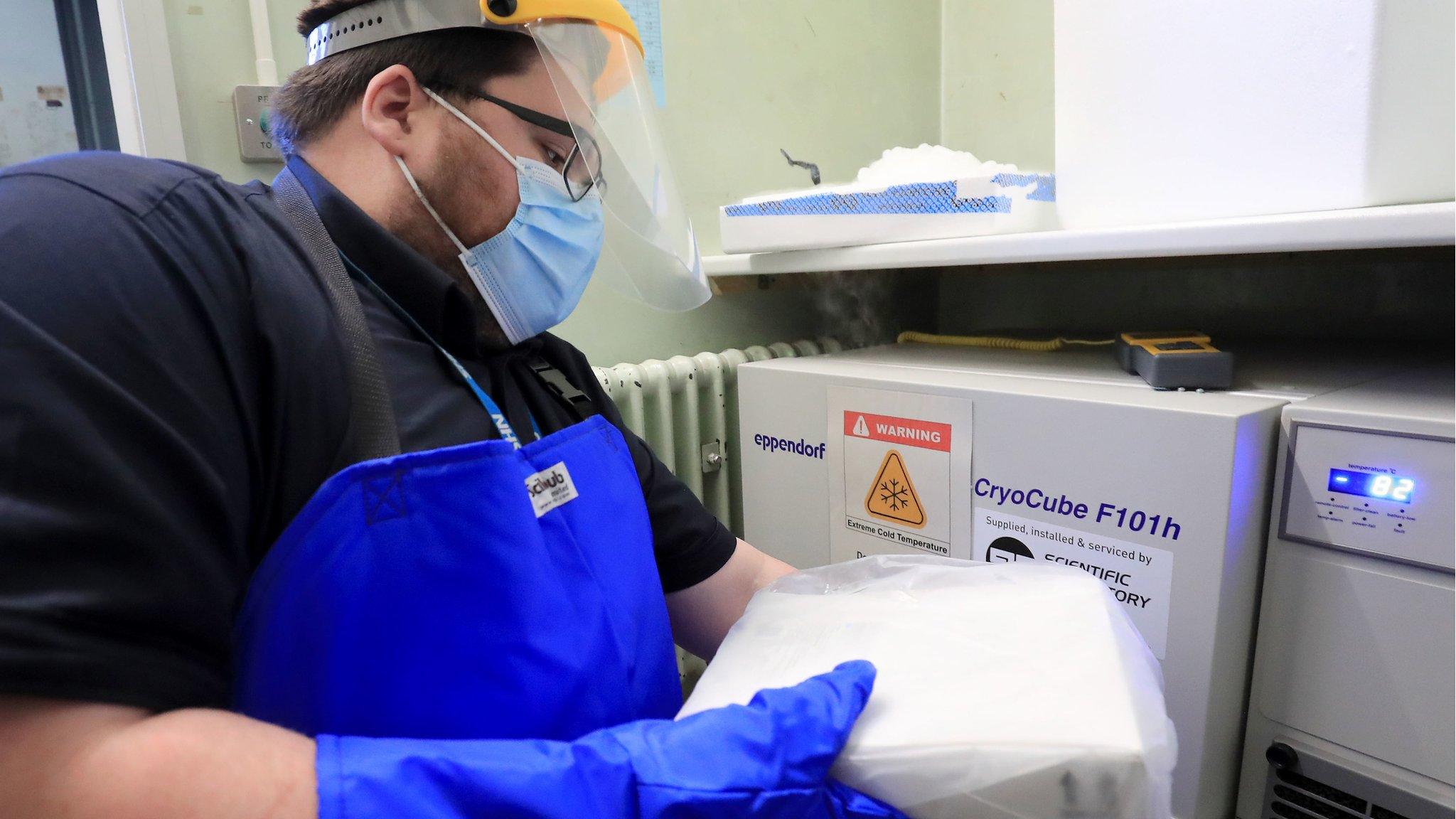
- Published5 December 2020
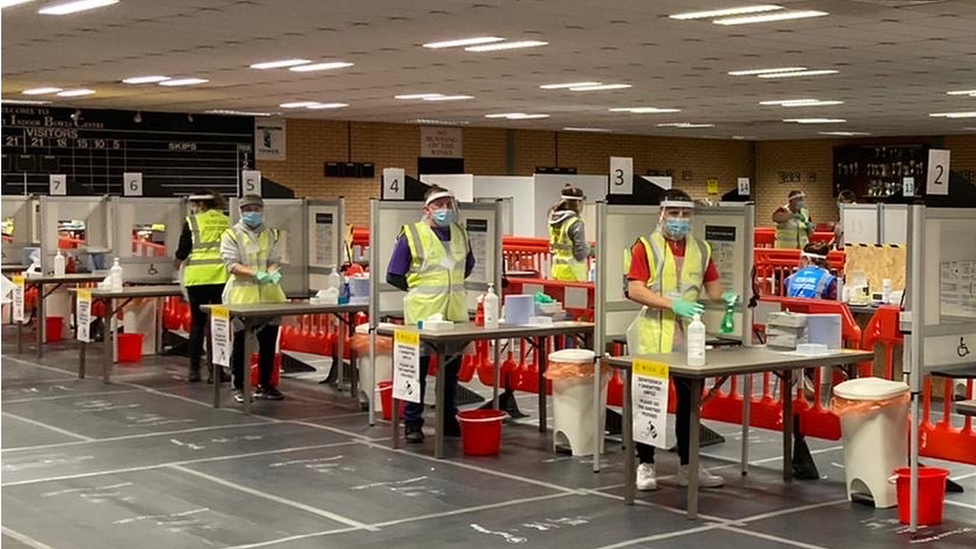
- Published4 December 2020
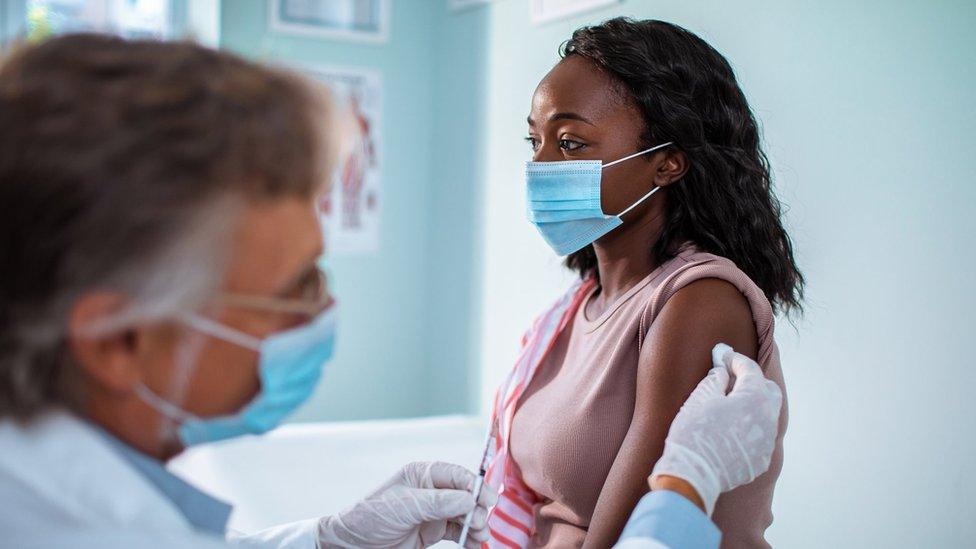
- Published3 December 2020
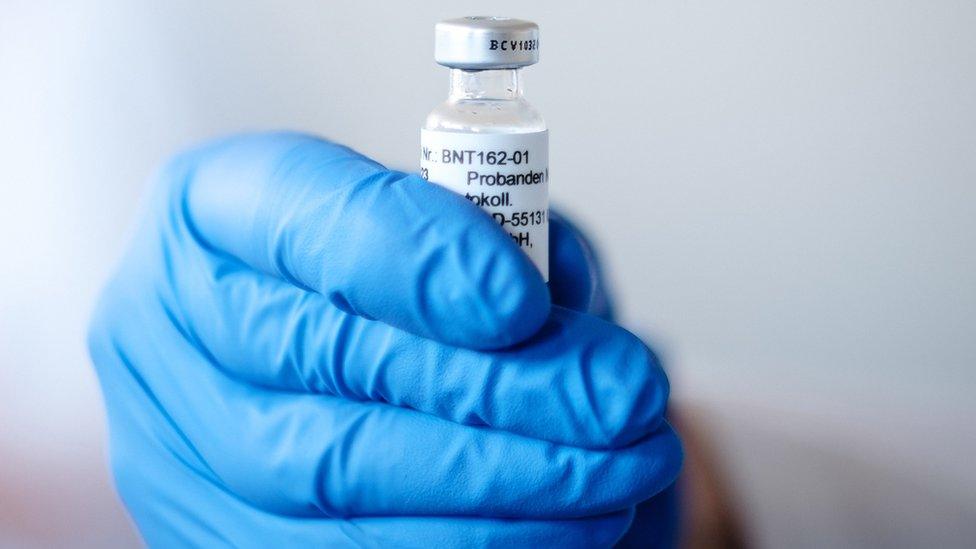
- Published4 December 2020

- Published2 December 2020
